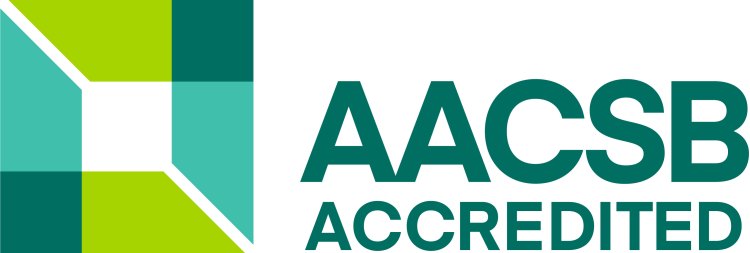Master of Science in Supply Chain Management
An Integrated Approach to Supply Chain Excellence
Overview
As supply chain networks continue to evolve and consumer demands shift the way organizations need to operate, the supply chain industry requires professionals and leaders equipped with the business knowledge and skills to navigate the future of supply chain management.
What exactly is supply chain management? It is the way producers manage the interconnected flow of goods, products and services between themselves and the ultimate consumer. Supply chain professionals generally assume different roles in leading day-to-day operations of the supply chain within a company and help facilitate the entire product cycle. The goal of supply chain professionals is to meet the demands of consumers while ensuring all parts of their organization are operating seamlessly and efficiently.
Michigan State University’s Master of Science in Supply Chain Management is focused on providing a quality education to supply chain professionals and empowering them with the skills and knowledge to sustain optimal performance in the complex and dynamic supply chain management landscape.

The Broad College of Business has been accredited by the Association to Advance Collegiate Schools of Business (AACSB) since 1953.
Required Courses
-
Analysis of Supply Markets
-
Applied Data Analysis
-
Communication in Supply Chain Management
-
Distribution Fulfillment
-
Field Study/Research Project
-
Global Supply Chain Management
-
Introduction to Logistics and Supply Chain Management
-
Logistics Operations Methods and Systems
-
Manufacturing Planning & Control
-
Strategic Sourcing
-
Strategy and Applications
-
Technology and Product Innovation Management
-
Total Quality Management and Lean Enterprise
Total Courses
Tuition
*
Tuition is determined by the University and does not include books or other fees that may apply. These rates are subject to change at any time during the program or enrollment process.
Payment Options
Have questions about financial aid, scholarships, or other ways to pay for your education?
Admission Requirements
To be considered for MSU’s MS in Supply Chain Management you must have:
- An undergraduate degree with at least a 3.0 overall GPA, official transcripts to be provided.
- A minimum of two years of professional supply chain work experience.
*Be prepared to provide Graduate Management Admission Test (GMAT) or Graduate Record Examinations (GRE) scores. Qualified applicants with three or more years of supply chain work experience and a cumulative undergraduate grade-point average 3.0 are not required to submit either a GMAT or GRE score for admission consideration. Applicants should, however, be prepared for a review of undergraduate transcripts for quantitative content and the grades achieved in those quantitative courses. Applicants may compensate for deficiencies in their background by providing a strong score on the GMAT or GRE or other academic review courses as required by the department. Submitted GMAT or GRE scores must not be more than five years old.
*MSU seeks a more qualified student body, including students with an average of nine years of Supply Chain work experience, coupled with a GPA of 3.2 or higher.
Applicants must submit the following items:
- A completed application.
- A one-time, nonrefundable $100 application fee and transcript fee.
- Official bachelor’s degree bearing transcript from a regionally or nationally accredited institution. Transcripts from Michigan State are not required.
- Current resume detailing professional work experience, academic credentials and related accomplishments, and pertinent biographical information.
- Three professional letters of recommendation
- At least one recommendation from a direct supervisor required, two is preferred. Letters should attest to the candidate’s supply chain management professional work experience, skill set and provide support of the candidate’s ability to succeed in a graduate program.
- Two personal statements of career goals and relevant information:
- Professional/Academic Background – Please tell us about your background, both professional and academic, and how these experiences have prepared you for a graduate program in Supply Chain Management. (maximum 750 words or 2 pages)
- Professional Goals – What are your professional goals in the Supply Chain Management field? How do you plan to achieve these goals and how does the MS in Supply Chain Management fit into this plan? (maximum 750 words or 2 pages)
Transfer Credit Policy
- Transfer credit is not accepted from other institutions for this program.
International Applicants
- Click here for more information.
- This program does not offer full-time F1 Visa sponsorship; however, short-term F1 Visa sponsorship is available for the weekend residency requirement.
Why Choose MSU Online?

MSU prides itself on its history of excellence with the online supply chain management master’s degree. The program offers a leading supply chain curriculum developed and taught by the academic thought leaders in the field. Michigan State University sets the standard with a top-ranked graduate program in supply chain management.
The M.S. in Supply Chain Management master’s degree is taught through the Broad College of Business, which is accredited by the Association to Advance Collegiate Business Schools (AACSB).
MSU’s 31-credit-hour M.S. in SCM program combines comprehensive eight-week online courses with three collaborative on-campus weekend residency sessions to maximize your learning experience. Facilitated by renowned SCM faculty members, the on-site sessions provide a unique platform for personalized discussions about cutting-edge supply chain theory and its practical applications in optimizing daily supply chain operations. As part of the curriculum, these on-campus sessions offer face-to-face learning along with valuable networking opportunities with fellow supply chain management professionals across diverse industries.
Weekend Residency Sessions Overview
- Three, 3-day weekends, strategically placed throughout your program are collaborative, face-to-face sessions on MSU’s campus in East Lansing: Friday, Saturday, Sunday.
- Everything is included in your program cost including your food, hotel stay and classroom time. It is an all-inclusive experience except for your travel expenses.
- Interactive case studies, breakout sessions and simulation assignments on-site allow you to work alongside a group of fellow supply chain professionals, providing an invaluable hands-on, face-to-face applied learning experience unlike any other.
- Build your network. Make lasting professional connections in your cohort that you can rely on long after you finish the program.
Work at Your Own Pace
Leverage the flexibility MSU online offers to work at your own pace. With online learning, you can set your own schedule and complete assignments when it suits you. This can be a great option for students who have other commitments. Whether you’re looking for more convenience or a faster path to graduation, MSU’s online program with weekend residency sessions have a lot to offer.
Please note this program does not offer full-time F1 Visa sponsorship; however, short-term F1 Visa sponsorship is available for the weekend residency requirement.
Who You’ll Learn From
You will have the opportunity to learn from MSU’s award-winning faculty, industry-renowned thought leaders who provide a firm foundation of both academic and applied education. Through extensive academic knowledge and innovative supply chain concepts and research, the program faculty and curriculum can prepare you to maximize performance within your organization and lead the supply chain of the future.
Michigan State University’s supply chain management programs offer the chance to learn from some of the best minds in the field, both in terms of cutting-edge research and experienced masters-level professors.
Faculty Spotlight: Dr. Sriram Narayanan
With a professional background and research interests that span multiple industries – automotive, apparel, software – Dr. Sriram Narayanan, Kesseler Family Endowed Faculty Fellow in Supply Chain Management, has a broad range of experience. “We have a very holistic program – we can take a student through a wide range of topics in supply chain. Supply chain itself is very vast, and I think we’re very good at logistics, operations, and procurement. We also have a very strong alumni base of supply chain professionals because we’ve been very good at supply chain for a long time – for a generation now! So, students who graduate out of the MSU program have a leg up from that standpoint. And we’re all very research active, all of the faculty, and doing high-quality research,” says Narayanan.
Who You’ll Learn With
A diverse, passionate, team-oriented network of supply chain managers and leaders like yourself who desire to positively impact their daily performance, while preparing for success in future stages of their supply chain management careers.
Students from the program continue to apply the knowledge and skills learned from MSU’s online program to their jobs and use the powerful MSU network to connect with other professionals.

“You immediately feel welcomed, you immediately understand Spartan pride is a real thing. It’s the culture at MSU, and you get pulled right into it.” – Monica Johnson

“The online portion gives me the flexibility. The on campus gives me face-to-face with the instructors and lets me network with other members of my cohort. It’s given me the opportunity to learn about other people and what they do every day.” – Malcom Green
What You’ll Learn
Designed to help you develop a “big picture” understanding of supply chain management, this program features cross-functional courses that focus on the relationship of supply chain management to information technology and innovation processes. You can discover valuable supply chain management strategies and practices that can positively impact your daily performance and prepare you for success in future stages of your supply chain management career.
- Ways to drive innovation and vision for your organization
- How to develop and implement integrated supply chain strategies
- The relationship of supply chain management to information technology and innovation processes
- The role of supply chain management in enterprise strategy
- Ways to improve supply chain management operating practices
- How to use supply chain management analytical methods
- Technology applications for supply chain management
- Methods for controlling the flow of information, materials and services
Who Should Consider Enrolling
This program is designed for supply chain managers and mid-to top-level executives with several years of supply chain management experience or several years of other functional management experience.
The ideal candidate will have:
- 2 years minimum professional supply chain work experience
- High degree of advancement potential into an organizational leadership role
- Bachelor’s degree from a regionally accredited university or college
- 3.0 minimum cumulative undergraduate grade point average (GPA)
Click here for admissions details. Please note this program does not offer full-time F1 Visa sponsorship; however, short-term F1 Visa sponsorship is available for the weekend residency requirement.
Time Commitment and Cost
Time Spent Learning Weekly
MSU's Master of Science in Supply Chain Management program combines online modules and face-to-face learning and requires 31 credit hours over the span of less than 24 months. There is no set time commitment each week for the online portion. However, students should expect to spend a few hours on coursework, including readings, discussions and assignments.
The in-person requirements consist of three weekend residency sessions on MSU's campus in East Lansing, Michigan (Friday, Saturday and Sunday).
Cost Per Credit Hour
Cost Per Credit Hour: $1,850
Total Credits Needed: 31
For more information regarding time spent learning weekly, required curriculum and tuition, click here.
Tuition is determined by the university and does not include books or other fees that may apply. These rates are subject to change at any time during the program or enrollment process.
Career Opportunities
A career in supply chain management can offer many exciting opportunities for those with the right skills and training. By earning an M.S. in Supply Chain Management through MSU, you could position yourself for success in this rapidly growing field with several different career paths.
By earning an M.S. in Supply Chain Management, you can prepare to manage the flow of goods and materials from suppliers to customers. In addition, you can gain the ability to work with complex data sets and utilize powerful analytical tools throughout supply chain operations. These skills are in high demand in today’s data-driven economy. With an M.S. in Supply Chain Management, you can be prepared to take on a variety of leadership roles within a company or organization.
Potential Outcomes
Supply chain management is a broad field that incorporates aspects of business, logistics, and engineering. As such, it is an in-demand skill set for many organizations. For recent graduates, there are a number of different options for employment within the supply chain. Many companies have entry-level roles that may serve as a springboard into management positions. There are also opportunities to work as consultants or contract workers, which can provide flexibility and independence. For those interested in leadership positions, there are director-level and VP-level jobs available at larger organizations. And for those with a specific interest in a particular product or service, there may be opportunities for product line ownership. In short, the field of supply chain management offers diverse opportunities for recent graduates to find meaningful and rewarding employment.
According to the U.S. Bureau of Labor Statistics, employment of logisticians is projected to grow 18% from 2022 to 2032, much faster than the average for all occupations.*
According to Payscale, graduates with a supply chain management background have an average base salary of $81,000.**
* Bureau of Labor Statistics, U.S. Department of Labor, Occupational Outlook Handbook, Logisticians, on the internet at https://www.bls.gov/ooh/business-and-financial/logisticians.htm#tab-6 (visited March 7, 2024).
** Payscale, Master of Science (MS), Supply Chain Management Degree, on the internet at https://www.payscale.com/research/US/Degree=Master_of_Science_(MS)%2C_Supply_Chain_Management/Salary (visited March 7, 2024).
National long-term projections may not reflect local and/or short-term economic or job conditions, and do not guarantee actual job growth. Program options do not guarantee career or salary outcomes. Students should conduct independent research for specific employment information.
Frequently Asked Questions
What is Supply Chain Management?
Put simply, supply chain management (SCM) is the process of coordinating all the resources and activities needed to bring a product or service from conception to delivery. This includes everything from raw materials and components to finished goods and packaging. In today's global economy, this often involves managing a complex network of suppliers, manufacturers, distributors, and customers located around the world. The goal of SCM is to optimize the flow of goods and information throughout the supply chain to improve efficiency and quality while reducing costs.
With the ever-changing landscape of the business world, SCM has become increasingly important in recent years. The pressure to deliver faster, better and cheaper products has put a strain on traditional supply chains. In response, companies have had to become more agile and adaptive, introducing new technologies and processes to keep up with the competition. Today's successful businesses understand that an efficient supply chain is essential to their bottom line. By carefully managing the flow of goods and information, they can quickly adapt to changing market conditions and deliver superior value to their customers.
What are the three key elements of SCM?
The 3 key elements are: sourcing, operations and logistics.
Sourcing is the process of acquiring goods and services from suppliers. This includes identifying potential suppliers, negotiating contracts and maintaining relationships with suppliers.
Operations is the process of transforming raw materials into finished products. This includes planning production schedules, managing inventory levels and ensuring quality control.
Logistics is the process of organizing the transportation and storage of goods. This includes tasks such as warehousing, order fulfillment and transportation management. Each of these elements is essential to the smooth operation of a supply chain.
What are some skills that are helpful for a successful career in supply chain management?
A career in supply chain management requires a unique blend of skills. It is important to have a strong understanding of the various components of the supply chain, from raw materials to finished products. Secondly, effective supply chain managers must be able to develop efficient and cost-effective plans for moving goods through the supply chain. This requires not only a keen eye for detail but also the ability to think creatively and outside the box. Finally, good communication and negotiation skills are essential to work effectively with suppliers, customers, and other stakeholders. Those who possess these skills can find themselves in high demand in today's competitive business world.
Does a master’s degree in supply chain management align with your career goals?
A master’s degree in supply chain management may be a way to advance your career in the field. The program can provide you with the skills and knowledge to be successful in the industry, and it can also help you to network with other professionals.
What can I do with a master’s degree in supply chain management?
With an advanced understanding of the principles of supply and demand, you can be equipped to manage the flow of goods and services across a complex network of suppliers, manufacturers and retailers. In this role, you'll be responsible for ensuring that products are delivered on time and in accordance with customer specifications. You'll also be tasked with developing efficient shipping routes and negotiating favorable rates with carriers. Additionally, you'll need to be able to troubleshoot any issues that arise along the supply chain. With a master’s degree in supply chain management, you can have the skills and knowledge necessary to excel in this exciting and fast-paced field.
Is supply chain management knowledge in high demand?
In any business, efficient management of resources is essential to success. This is especially true in the world of supply chain management, where the goal is to ensure that goods and services flow smoothly from supplier to customer. To achieve this, supply chain managers must have a detailed understanding of the various processes involved in the production and distribution of goods. They must also be experts in project and financial management, logistics, and accounting. In recent years, there has been a growing demand for supply chain management knowledge. As businesses have become increasingly globalized, the need for managers who can effectively coordinate complex supply chains has grown exponentially. The rise of e-commerce has also created new challenges for supply chain managers, as they must now contend with the added complexity of managing digital products and services. As a result, those who possess the skills and knowledge necessary to effectively manage supply chains are in high demand.
How long is MSU’s Supply Chain Management Degree?
- The program is comprised of 5 semesters equal to 20 months (about 1 and a half years) in length
- Each course is 8 weeks in length
- All courses are created and taught by MSU full-time faculty
- Online classes will be a mix of synchronous and asynchronous materials
- Asynchronous: assignments, reading, quizzes that you work on your own time
- Synchronous: weekly instructor-led live sessions.
Students are placed in a cohort, allowing them to work together and to provide mutual support as they work toward their degree. Students progress through the program together and learn to lead as they work on collaborative projects in a hybrid learning environment. As they progress through the program in their cohort, they can develop life-long mentors and connections who may impact the course of their professional life.
Learn from the Leader in SCM Education!
Already started your MSU Online application? Click here to login.
Tuition
* Tuition is determined by the University and does not include books or other fees that may apply. These rates are subject to change at any time during the program or enrollment process.
Payment Options
Have questions about financial aid, scholarships, or other ways to pay for your education?
Chat with Us

